The Lavin Agency Speakers Bureau
A speakers bureau that represents the best original thinkers,
writers, and doers for speaking engagements.
A speakers bureau that represents the best original thinkers,
writers, and doers for speaking engagements.
Are you looking for an edge to help you succeed? Good news: You've already got one.
How do you get a competitive “edge” at work and in life? Star business professor Laura Huang says that we don’t need to change ourselves to get the upper hand: we can simply make the most of who we already are and what we already know. She’s a Distinguished Professor at Northeastern and the Director of the Women’s Entrepreneurship Center, as well as a Harvard professor and the author of Edge and You Already Know. Laura teaches us how to use everything—even our perceived flaws and the systemic biases that hold us back—to our advantage. And she shows us how to train our intuition (that unique blend of external data and personal experience) to make the right decisions and turn obstacles into assets.
“We’re all looking for an edge. But where does it come from? Laura Huang provides the answers. Be authentic and distinct. Provide value to others. And turn adversity into advantage.”—Daniel H. Pink, author of To Sell Is Human
How do we find the elusive “edge” that will help us gain success? We don’t need to go searching too far, says Laura Huang, acclaimed business professor and author of Edge: Turning Adversity into Advantage. If we learn more about our strengths and weaknesses and put them both to work with grit and determination, we can empower ourselves to create personal success—and find our edge. Laura’s talks teach us how to use that edge in a strategic way, drawing on examples from Olympians to Louis Vuitton assistants-turned-executives; along the way, she’ll show you that staying sharp means understanding and building on everything about yourself, even the flaws that you thought would be an obstacle.
Laura’s groundbreaking research also includes her work on “gut feel”—that underrated sixth sense that helps us make better decisions (even when we don’t realize it). She’s conducted dozens of interviews with investors and entrepreneurs, revealing the vital role that gut feel plays in managing complexity and risk—and the difference between big wins and playing it safe. And in her most recent book, You Already Know: The Science of Mastering Your Intuition, she offers a new scientific way to hone and harness your intuition in order to make better decisions at work and in life.
Laura shows us how to “take control of our toughest challenges with poise and authenticity” (New York Times bestselling author Seth Stephens-Davidowitz), giving all of us a model for what it means to use our natural talents to the fullest. She’s a Distinguished Professor at Northeastern and the Director of the Women’s Entrepreneurship Center, where she studies relationships and bias in entrepreneurship and at the workplace. She is also a professor at Harvard and has previously held a faculty position at Wharton. She was named one of the 40 Best Business School Professors Under the Age of 40 by Poets and Quants, and was named to the global Thinkers50 Radar list as one of the top thinkers with the potential to change the world of theory and practice. Laura has been featured in The Wall Street Journal, Forbes, USA Today, and Financial Times.
Laura was amazing, I wish we had allotted more time to her. We surveyed the participants, and she scored the highest based on the top speaker. I know she only scratched the surface on her work so I am already thinking about ways we can perhaps leverage her for next year (if she is available) as a part #2. Personally, I have her book and saw her speak a couple years ago and it was such an honor to meet her and get to know her a little bit. She was so approachable and really fit in so well.
Royal Bank of Canada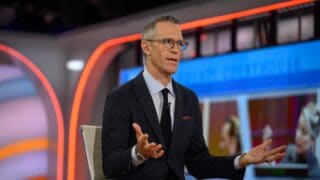
Author of The Loop: How A.I. is Creating a World without Choices and How to Fight Back NBC News Technology Correspondent Former Editor-in-Chief of Popular Science Magazine AI Strategic Advisor to Fortune 500 Companies

Instant New York Times Bestselling Author of Empire of AI TIME100 AI Honoree Lead Designer of The Pulitzer Center's AI Spotlight Series
Expert on Time and Happiness Author of Happier Hour UCLA Professor
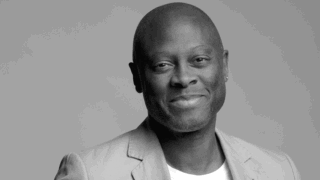
Founding President, PlusCo Venture Studio Former Chief Creative and Innovation Officer, Cossette
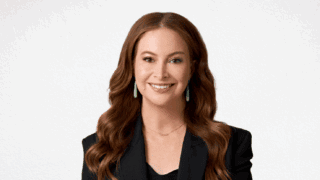
Author, Stress Resets Clinical Psychologist
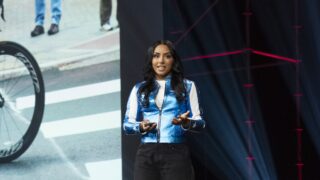
Host and Creator of Challenge Accepted, the YouTube Series with 5 Million Followers TIME100 Honoree

Founding President, PlusCo Venture Studio Former Chief Creative and Innovation Officer, Cossette

Instant New York Times Bestselling Author of Empire of AI TIME100 AI Honoree Lead Designer of The Pulitzer Center's AI Spotlight Series
Author of The Age of Cryptocurrency and Our Biggest Fight Co-Host of the Money Reimagined Podcast MIT Media Advisor

Author of Grit, the #1 New York Times Bestseller | Pioneering Researcher on Grit, Perseverance, and the Science of Success

2024 Nobel Prize Winner | 3rd Most Cited Economist in the World | Bestselling Co-Author of Why Nations Fail and Power and Progress

Harvard Business School Behavioral Science Professor | "40 Under 40 MBA Professor" | Author of TALK: The Science of Conversation and the Art of Being Ourselves

#1 New York Times Bestselling Co-Author of Abundance | Host of thePlain English Podcast | Founder of the Substack Derek Thompson

#1 New York Times Bestselling Author of How the Word Is Passed and Above Ground | The Atlantic Staff Writer
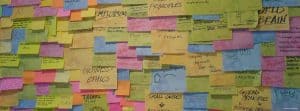

It’s one of the most polarizing pieces of advice that we hear: “Go with your gut.” Many of us disregard our intuition in favor of gathering more and more data. But in an age where AI is rapidly taking over decision-making, Laura Huang argues that our intuition is the most important thing setting high performers apart. And more importantly, she teaches us how to hone it.
In this talk, Laura discusses her research on decision-making in organizations, and how you can combine both data and gut feel to make better decisions. Drawing on her fascinating book, You Already Know, she reveals how individuals and organizations alike can make better decisions by combining our unique experience with the data we already have.
Laura scientifically breaks down what happens during the intuiting process and details the personified, physical, emotional, and cognitive components of the gut feel that results. She shares real-life examples of ways you can leverage your intuition—like meeting someone three different times and in three different contexts before you hire them (and how you can do that in only 45 minutes). And she provides valuable exercises to help you recognize, understand, and strengthen your intuition:
This talk is a must-listen for leaders, managers, individual contributors, and everyone looking to use what they already know to make better decisions in the day-to-day.

Despite the transformative nature of artificial intelligence and data analytics, what underlies these technologies and tools are human capabilities, innovative uncertainty, and complex information sources. If we can include our own authentic human intelligence in the conversation around AI, we’ll gain a more positive, balanced, and sophisticated AI strategy.
Drawing from her award-winning research on perceptions, signals, and human behavior, Laura Huang integrates her human-centric perspective to show how the artificially-intelligent (AI) perspective is only as good as our ability to recognize the authentic and a behaviorally-intelligent perspective.
